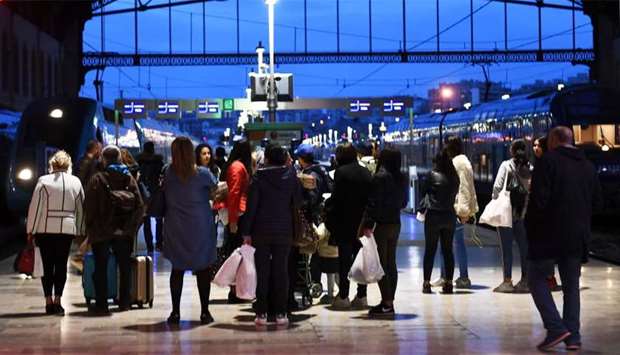Renewed labour strikes disrupted some rail service in France on Sunday, though authorities said the disruptions were not as severe as those experienced earlier in the week.
The national rail service SNCF reported that one in five of its high-speed trains were in service. That said, some connections to Germany had to be cancelled.
About two-thirds of regional trains had to be cancelled as well, which is still a lower proportion than the service saw during strikes on Tuesday and Wednesday.
Railway unions are planning a three-month rolling programme of strikes, on two days out of every five until the end of June, in protest of a series of reforms proposed by the French government.
The government says its plans are necessary to reduce the costs of the SNCF and prepare it to face future competitors, who, under European Union law, must soon have access to the national rail network.
The government also wants new recruits to the railways to be taken on under standard employment contracts rather than under their current special status, which is similar to that of civil servants.
Currently, most SNCF staff are guaranteed a job for life, as well as regular pay increases linked to seniority and retirement at age 57 - or 52 for train conductors.
But the unions say that those benefits make up for hard and highly-skilled jobs with long shifts and wages barely above the national average.

